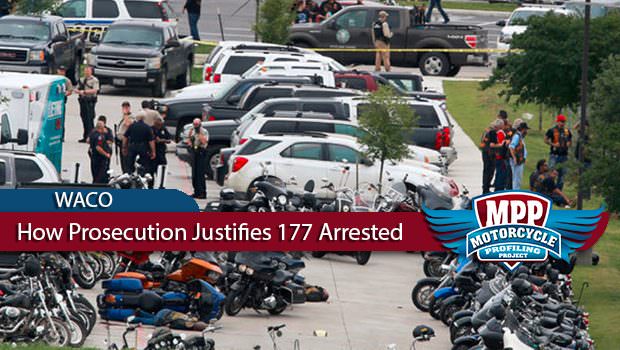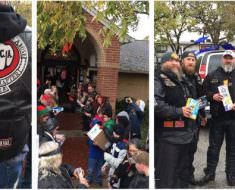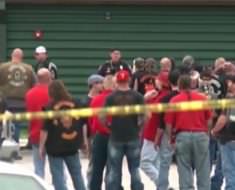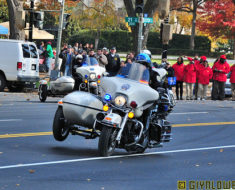On May 17, 2015, Paul Landers was looking for a place to hang a Texas Confederation of Clubs and Independents banner in preparation for a scheduled political gathering to discuss motorcycle rights issues when gunfire erupted at a Twin Peaks in Waco, Texas. Paul was there to provide the region updates following the National Coalition of Motorcyclists National Convention that was held in Denver the previous week.
Despite being a dedicated political rights advocate with an indisputable track record, Paul and 176 other individuals were arrested and charged under the state’s organized crime statute for engaging in organized crime and committing or conspiring to commit capital murder. 154 of those arrested have had their cases presented to a grand jury, have been indicted, and are currently awaiting trial.
The significance of Waco to the motorcycle club community cannot be over-stated. What law could possibly allow 177 motorcyclists to be arrested for mere association? A simple analysis of the Texas Organized Crime Statute is key to understanding the prosecutor’s strategy and the legal argument 154 defendants will have to overcome.
Understanding the Texas Organized Crime Statute
The statute underlying the charge that 177 people were engaging in organized criminal activity in Waco on May 17, 2015 is broad and all consuming.
Sec. 71.02. ENGAGING IN ORGANIZED CRIMINAL ACTIVITY.
- A person commits an offense if, with the intent to establish, maintain, or participate in a combination or in the profits of a combination or as a member of a criminal street gang, the person commits or conspires to commit one or more of the following:
- murder, capital murder, arson, aggravated robbery, robbery, burglary, theft, aggravated kidnapping, kidnapping, aggravated assault, aggravated sexual assault, sexual assault, continuous sexual abuse of young child or children, solicitation of a minor, forgery, deadly conduct, assault punishable as a Class A misdemeanor, burglary of a motor vehicle, or unauthorized use of a motor vehicle;
- “Conspires to commit” means that a person agrees with one or more persons that they or one or more of them engage in conduct that would constitute the offense and that person and one or more of them perform an overt act in pursuance of the agreement. An agreement constituting conspiring to commit may be inferred from the acts of the
Texas Statute says “Criminal street gang” means three or more persons having a common identifying sign or symbol or an identifiable leadership who continuously or regularly associate in the commission of criminal activities.






